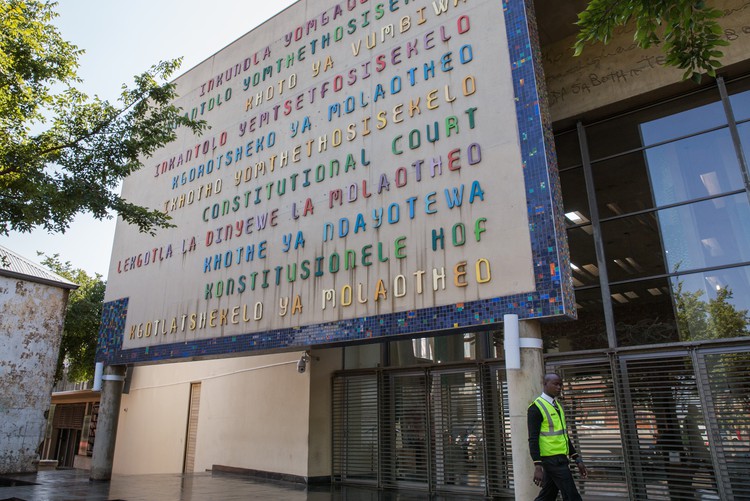Covid-19: Family of dead man ask court to rule against police and army
“Security services consider the lockdown a licence to use force and to punish civilians”
Relatives of Alexandra resident Collins Khosa, who say he died after being tortured by soldiers, have turned to the Constitutional Court for justice for him and other victims of “lockdown brutality”.
The family says Khosa’s death was the ninth since the lockdown, which proves “overwhelmingly that security services consider the lockdown a licence to use force and to punish civilians”.
They want the court to grant a declaratory order confirming the rights of citizens “to send a strong message that there is no such licence”.
They also want all SA National Defence Force (SANDF), Metro police and SA Police Service (SAPS) members who were present during the attack on Khosa to be disarmed immediately
They are asking for orders, to be supervised by the Court, directing the Ministers of Defence and Police to caution their members to apply only minimum force, to develop and publish a code of conduct, and to set up a complaints mechanism with a 20-strong team to investigate all complaints.
They also want a “special investigation” to be established under the leadership of a retired judge to investigate all allegations of lockdown brutality by security forces.
Mphephu Khosa was the life partner of Collins Khosa, 40, a father of three who worked at Chipkins Bakery.
In her affidavit, Mphephu Khosa said in the late afternoon of 10 April, SANDF members came to the house and accused them of breaking lockdown regulations, pointing to a camping chair and a half-cup of alcohol in the yard. They stormed the house and confiscated two beers.
Outside, she said, they poured beer over Khosa’s head, choked him, slammed him against a cement wall, hit him with the butt of a machine gun, kicked, slapped and punched him.
They also assaulted his brother-in-law, Thabiso Muvhango.
She said she had been whipped with a sjambok.
Neighbours, in their own affidavits, confirmed that they had taken video of the incident but had been forced to delete the recordings by the soldiers.
Khosa died three hours later. The cause of death was recorded as “blunt force head injury”.
“We are in absolute shock. We are emotionally obliterated and have lost complete faith in the security forces,” Mphephu Khosa said.
She listed several other incidents of violence and deaths. “The Ministers of Defence and police have not condemned the actions of those responsible,” she said. Minister of Defence Nosiviwe Mapisa-Nqckula had cautioned people “not to provoke” soldiers and law enforcement, she said, and Minister of Police Bheki Cele had likewise encouraged police to “push people back into their homes if they refuse”. In response to allegations of brutality, Cele had said “not listening to us is brutality”.
“We believe others will suffer a similar fate if nothing is done to curb this unbridled brutality,” Mphephu Khosa said.
The family did not believe there had been any “credible investigation” into Khosa’s death. “If it is being done, it is without transparency, independence and effectiveness. It needs to be overseen by the courts and it needs to be done right now.”
Attorney Wikus Steyl said the police minister and SAPS had indicated they would not file any answering affidavits until Chief Justice Mogoeng Mogoeng had issued directions regarding the future of the matter. He told GroundUp the Minister of Defence and the SANDF had indicated they were consulting lawyers, but would not meet Wednesday’s noon deadline for filing.
Next: Covid-19: Zimbabwean nationals ask to be repatriated
Previous: Parent company moves to put Cash Paymaster Services into business rescue
© 2020 GroundUp.
This article is licensed under a Creative Commons Attribution-NoDerivatives 4.0 International License.
You may republish this article, so long as you credit the authors and GroundUp, and do not change the text. Please include a link back to the original article.



